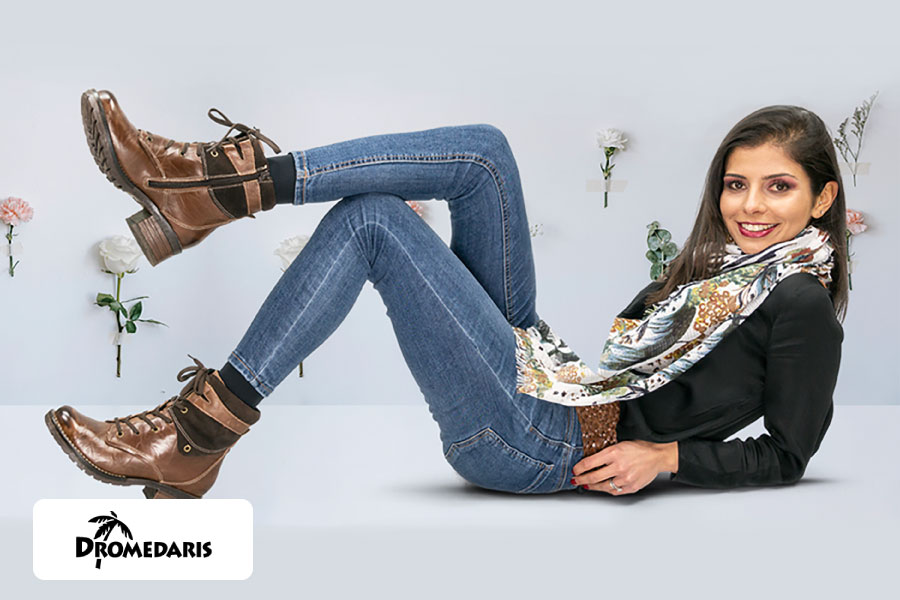It’s no secret that eCommerce has been fashion’s fastest growing sales channel. But that boom hasn’t just come on the consumer end—retail stores are now asking for easier ways to buy.
We’re well past the days of sending excel spreadsheets back and forth, and innovative fashion businesses like the footwear brand Dromedaris have begun selling to their wholesale accounts via sophisticated B2B stores that take all the friction out of making the sale.
Dromedaris, winner of our B2B Store Showcase award, has a beautiful wholesale store they built using ApparelMagic’s new B2B ecommerce platform.
We spoke to Amanda Malis of Dromedaris about how changing technology and expectations combined with the challenges of the Covid-19 pandemic led Malis and her team to launch online wholesale.
“B2B actually came at a really great time,” Malis says. “Our retail customers aren’t seeing our products in person.”
The challenge became how to get their footwear—cool, statement-making boots for women—in front of buyers without physically being in the same room. Other approaches worked for a time, but a more permanent solution was needed.
“We had physical catalogs at one point,” Malis says. “but now everything can be in our B2B site.”
The new Dromedaris wholesale site gives retailers everything they need to put together assortments for their stores.
“They are able to view our catalogs, stock levels and prices, access marketing material, administrative documents and customer reviews for buying guidance, as well as complete orders at their own convenience.”
It’s a streamlined experience for the customers, and even from the brand side, they’ve seen an immediate benefit of orders rolling in with less friction.
“They used to have to either email or call us,” Malis says. “It’s helped a lot with our customer service, because I don’t have to take as many calls or emails. Customers can put their orders in themselves.”
It goes without saying though that even for a wholesale customer, the eCommerce experience has to be top-notch to make that sale. Using the visual style the brand is known for, the Dromedaris B2B store has the same panache as their direct-to-consumer shopping experience. Lifestyle imagery and polished product shots pop off the screen. It’s significantly livelier than a fax or spreadsheet.
“We were able to design the store to resemble our B2C store, which is important for our branding strategy,” Malis says.
The retailers, for their part, are thrilled. They get their orders faster, and can shop the B2B store just like they are shopping for themselves, browsing and adding items to their cart as they go.
“When I talk to my retailers on the phone and tell them about it, they’re excited that they don’t have to wait to hear back from me if we have stock,” Malis says. “The site has brought us many efficiencies and even improved sales due to the wonderful shopping experience it provides.”
In addition to a high quality experience, Dromedaris has been able to implement new sales strategies using the B2B store’s intuitive page-building tools.
“When we have items that are closed out with only a couple items left, it was really hard to get the retailers to know that,” Malis says, “So we created a part on the site that’s called ‘Outlet’ where we promote special offers to the retailers where they can get a great deal on an assortment of shoes.”
Fresh ideas and new implementations of technology are key to running the modern fashion brand, and after building such a successful eCommerce experience for retailers, Malis has high hopes for how Dromedaris will approach the future:
“Not only has the B2B store helped us to transition smoothly into a digital era, but it has allowed us to help our retail customers do the same. We hope to continue to improve and grow using this platform.”













